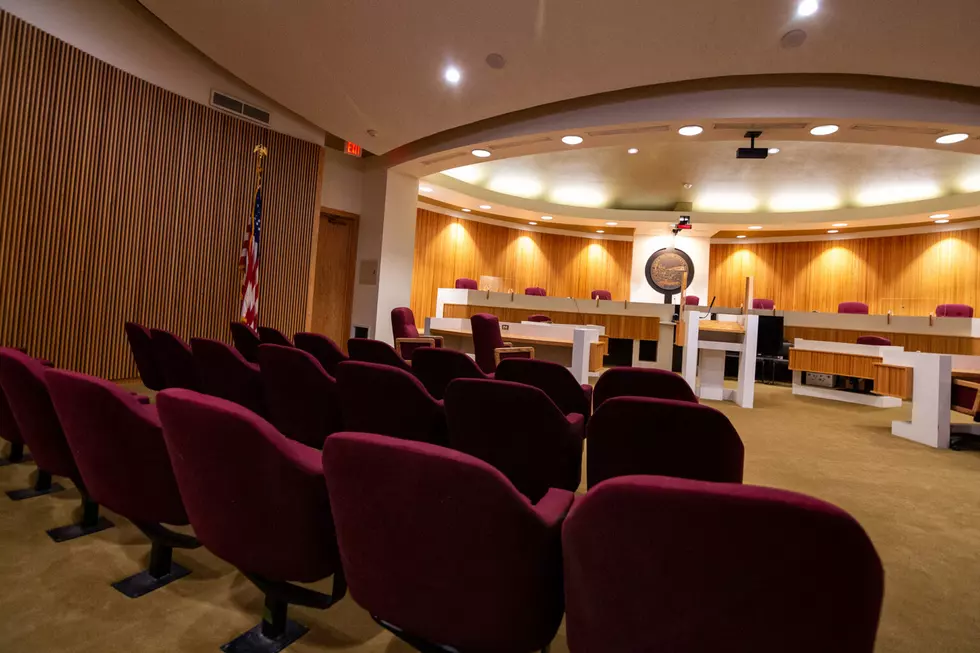
Attorneys sue to stop Montana lawmakers’ back-up plan for courts
The group that has challenged the constitutionality of the Montana governor appointing judges directly asked the state’s Supreme Court to include consideration of Senate Bill 402 as unconstitutional as well in a motion filed late Wednesday.
The group, which includes former legislators Dorothy Bradley and Bob Brown, as well as Constitutional Convention Delegate Mae Nan Ellingson and the League of Women Voters, said that SB402 is also unconstitutional and should be considered as part of the larger tussle over the fate of the state’s judiciary.
Senate Bill 140 abolished the judicial nomination commission in favor of the governor appointing judges directly. The day after it was signed, the same group of plaintiffs challenged the constitutionality of the measure in court. This set off a spate of court filings, subpoenas and a special select committee investigating the judiciary.
However, as soon as SB140 was challenged, lawmakers introduced SB402 as a back-up plan, which would have expanded the judicial nomination commission and tripled the number of lay people on the commission, all appointed by the governor.
In the court filing on Wednesday, attorneys argue the two measures are inextricably linked, and that SB402 is unconstitutional because it violates several portions of the state constitution and judges’ First Amendment rights.
Among the concerns raised by the new filing is that SB402 was introduced after the transmittal deadline, that it violates the single-subject clause of the constitution, and that it usurps the power to regulate the courts, which attorneys argue rests with the judiciary, not the executive or legislative branches.
Furthermore, since SB402 also restricts judges from hearing a case in which they have given legislative input, the measure violates the First Amendment of the U.S. Constitution.
Attorneys for the legislature and the governor’s office have both said they oppose the motion to amend the complaint and include SB402 in the ongoing litigation.
Transmittal
One of the arguments raised by attorneys Clifford Edwards and James Goetz is that SB402 was introduced on March 29, after the transmittal deadline. Transmittal is the half-way point of the legislative session, in which all bills must clear one chamber of the legislature. The legislature’s rules prohibit the introduction of new policy after that point, unless the bill is an appropriation — or revenue bill.
The lawsuit argues that the bill was disguised as a revenue bill by raising certain court fees — the “fee for entry of judgment” from $45 to $50.
“This was a transparent effort to take advantage of a limited exception to the transmittal rules,” the motion states. “By employing this ‘appropriation’ artifice, some in the legislature apparently felt they could dodge their own rules.”
However, the suit also claims that the bill violates appropriations rules of the legislature, which says that all revenue bills must originate in the House of Representatives, not the Senate.
One subject, one bill
The lawsuit also raised an objection to SB402 because the bill violates the one-subject rule, which states that each bill must only address one subject.
Because the bill deals with court fees, the judicial nomination commission and rules of judicial conduct, it violates longstanding Montana law. The lawsuit alleges those topics must be broken into separate bills or have only one topic.
Judicial power
The lawsuit also raises concerns that SB402 is an attempt by the lawmakers to overstep the state’s constitution by dictating how the courts are run. Edwards and Goetz cite Article VII of the Montana Constitution, which says the Supreme court has general power over all courts and that it makes rules governing the courts, including “appellate procedure, practice and procedure for all other courts.”
“The recent amendment to SB402 violates the Montana Constitution by arrogating to the Legislature powers constitutionally reserved to the Montana Supreme Court and the Judicial Standards Commission,” the suit states.
First Amendment
The plaintiffs’ attorneys not only cite the state’s constitution, but the United States Constitution and the First Amendment. The suit argues that by prohibiting judges from expressing support or opposition for policy matters, it restricts their First Amendment rights to free speech.
“As Chief Justice McGrath and others eloquently state in a recent hearing before a legislative committee, the mere fact that a presiding judge may have expressed an opinion on the desirability of a piece of legislation does not mean the judge has a preconceived opinion on constitutionality,” it said.
Citing a longstanding precedent from the U.S. Supreme Court decided in 1972, attorneys argued no one reasonable expects judges to be free from personal opinions:
“Even if it were possible to select judges who did not have preconceived views on legal issues, it would hardly be desirable to do so. Proof that a Justice’s mind at the time he joined the court was a complete tabula rasa [blank slate] in the area of constitutional adjudication would be evidence of lack of qualification, not a lack of bias.”
